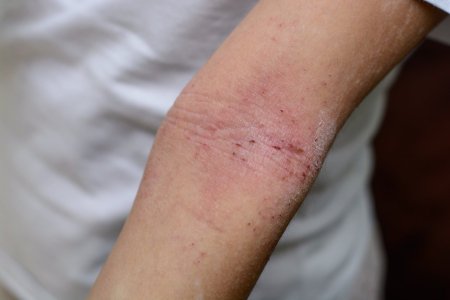Claim Your $850 Now! How Sharing Your Phone Records Could Land You Cash from $29.5 Million Settlement – Act Fast!
By
Michelle E.
- Replies 0
In a world where unsolicited calls are more than just a nuisance—they're a breach of privacy—some justice can still be found. If you've been on the receiving end of relentless robocalls from Citibank, there's a silver lining waiting for you.

A sizable $29.5 million settlement has been reached, and you could be entitled to a piece of that pie, with payments potentially reaching up to $850. But time is of the essence, as the clock is ticking for claimants to step forward!
Understanding the Citibank Settlement
The class action lawsuit against Citibank alleges that the financial giant bombarded individuals with unsolicited robocalls regarding past-due credit card balances, spanning the last decade. These calls are said to have violated the Telephone Consumer Protection Act (TCPA), a law designed to safeguard consumer privacy. While Citibank has not admitted to any wrongdoing, it has agreed to the multimillion-dollar settlement to resolve the claims.
Robocalls can be more than just a minor inconvenience, especially for senior citizens. These calls can lead to confusion, anxiety, and even financial exploitation. Seniors are often targeted by scammers because they may be more trusting and less likely to hang up the phone.

The Power of the TCPA: Understanding Your Rights
The Telephone Consumer Protection Act (TCPA) is a federal statute that was enacted in 1991 as a response to consumer concerns about the growing number of unsolicited telemarketing calls and faxes. The TCPA restricts the making of telemarketing calls and the use of automatic telephone dialing systems and artificial or prerecorded voice messages. The rules under the TCPA apply to common carriers as well as to other marketers.
Individuals can potentially recover $350 to $850 for each call that violates the TCPA. The recovery amount can reach up to $2,500 per claim, but only if the claimant can prove receiving more than five calls from Citibank. This is why this settlement is important—it represents a victory for consumers and serves as a deterrent to companies considering similar practices. It also reminds you of your rights and recourse in case of issues like the aforementioned.
Who's Eligible for the Payment?
The settlement is designed to benefit those who are:

How to Claim Your Share
To lay claim to your share of the settlement, you must provide evidence of the calls. This could be in the form of phone records, screenshots, or any other documentation that proves you received the calls. The more evidence you can provide, the better your chances of a higher payout, with a cap of $2,500 per claimant unless you can demonstrate that you received more than five calls.
The deadline to file a claim is fast approaching on December 20. Don't let this opportunity slip by; gather your evidence and prepare to submit your claim. The final approval hearing is set for January 14, 2025, but your action is needed now.

The Process Simplified
1. Check your eligibility: Were you contacted by Citibank with robocalls about a past-due credit card account during the specified period?
2. Gather evidence: Compile phone records, screenshots, or other proof of the calls.
3. File your claim: Complete the claim form before the December 20 deadline.
Class action lawsuits like this one empower individuals who might otherwise feel helpless against large corporations. By banding together, claimants can hold companies accountable for their actions and receive compensation for their troubles. It's a powerful reminder that consumer rights are worth fighting for.
Beyond the Settlement: Protecting Yourself
While this settlement offers a chance for compensation, it's also a wake-up call to be vigilant about your personal information. Here are some tips to protect yourself from unwanted calls and potential scams:
- Register your phone number with the National Do Not Call Registry.
- Be cautious about sharing your phone number online or in forms.
- Use call-blocking services or apps to filter unwanted calls.
- Never provide personal information to unsolicited callers.
Speaking of settlements, Citibank isn’t the only major bank to release payouts to their users due to alleged exploitation issues. Recently, Visa and Mastercard were also subject to a major settlement. If you’re a user of any of the two banks, learn more in this story if you qualify for their payout!

Remember, your voice matters, and so does your privacy. By taking action today, you're not just claiming potential compensation—you're also standing up for your rights. Claim your $850 now, and let's show that when consumers unite, we can make a difference.
Have you been affected by robocalls? Will you be filing a claim in the Citibank settlement? Share your experiences and tips for dealing with unwanted calls in the comments below!

Eligible Americans have a chance to claim direct payments between $350 and $850 as part of a $29.5 million settlement with Citibank over unsolicited robocalls. Image source: Pexels.
A sizable $29.5 million settlement has been reached, and you could be entitled to a piece of that pie, with payments potentially reaching up to $850. But time is of the essence, as the clock is ticking for claimants to step forward!
Understanding the Citibank Settlement
The class action lawsuit against Citibank alleges that the financial giant bombarded individuals with unsolicited robocalls regarding past-due credit card balances, spanning the last decade. These calls are said to have violated the Telephone Consumer Protection Act (TCPA), a law designed to safeguard consumer privacy. While Citibank has not admitted to any wrongdoing, it has agreed to the multimillion-dollar settlement to resolve the claims.
Robocalls can be more than just a minor inconvenience, especially for senior citizens. These calls can lead to confusion, anxiety, and even financial exploitation. Seniors are often targeted by scammers because they may be more trusting and less likely to hang up the phone.

If you've been receiving unwanted calls, it's important to know that the TCPA provides a pathway for consumers to seek damages for violations. Image source: Pexels.
The Power of the TCPA: Understanding Your Rights
The Telephone Consumer Protection Act (TCPA) is a federal statute that was enacted in 1991 as a response to consumer concerns about the growing number of unsolicited telemarketing calls and faxes. The TCPA restricts the making of telemarketing calls and the use of automatic telephone dialing systems and artificial or prerecorded voice messages. The rules under the TCPA apply to common carriers as well as to other marketers.
Individuals can potentially recover $350 to $850 for each call that violates the TCPA. The recovery amount can reach up to $2,500 per claim, but only if the claimant can prove receiving more than five calls from Citibank. This is why this settlement is important—it represents a victory for consumers and serves as a deterrent to companies considering similar practices. It also reminds you of your rights and recourse in case of issues like the aforementioned.
Who's Eligible for the Payment?
The settlement is designed to benefit those who are:
- Not current or former Citibank customers but received one or more prerecorded calls or
- Robocalls concerning a past-due credit card account between August 15, 2014, and July 31, 2024.

Claimants are required to provide evidence such as phone records or screenshots to support their claims by December 20. Image source: Pexels.
How to Claim Your Share
To lay claim to your share of the settlement, you must provide evidence of the calls. This could be in the form of phone records, screenshots, or any other documentation that proves you received the calls. The more evidence you can provide, the better your chances of a higher payout, with a cap of $2,500 per claimant unless you can demonstrate that you received more than five calls.
The deadline to file a claim is fast approaching on December 20. Don't let this opportunity slip by; gather your evidence and prepare to submit your claim. The final approval hearing is set for January 14, 2025, but your action is needed now.

The settlement is also open to non-customers of Citibank who received prerecorded calls or robocalls about past-due credit card accounts between specific dates. Image source: Pexels.
The Process Simplified
1. Check your eligibility: Were you contacted by Citibank with robocalls about a past-due credit card account during the specified period?
2. Gather evidence: Compile phone records, screenshots, or other proof of the calls.
3. File your claim: Complete the claim form before the December 20 deadline.
Class action lawsuits like this one empower individuals who might otherwise feel helpless against large corporations. By banding together, claimants can hold companies accountable for their actions and receive compensation for their troubles. It's a powerful reminder that consumer rights are worth fighting for.
Beyond the Settlement: Protecting Yourself
While this settlement offers a chance for compensation, it's also a wake-up call to be vigilant about your personal information. Here are some tips to protect yourself from unwanted calls and potential scams:
- Register your phone number with the National Do Not Call Registry.
- Be cautious about sharing your phone number online or in forms.
- Use call-blocking services or apps to filter unwanted calls.
- Never provide personal information to unsolicited callers.
Speaking of settlements, Citibank isn’t the only major bank to release payouts to their users due to alleged exploitation issues. Recently, Visa and Mastercard were also subject to a major settlement. If you’re a user of any of the two banks, learn more in this story if you qualify for their payout!
Key Takeaways
- Eligible Americans have a chance to claim direct payments between $350 and $850 as part of a $29.5 million settlement with Citibank over unsolicited robocalls.
- Claimants are required to provide evidence such as phone records or screenshots to support their claims by December 20.
- The class action lawsuit alleges Citibank violated the TCPA with robocalls over the last decade, though Citibank has not admitted to any wrongdoing.
- The settlement is also open to non-customers of Citibank who received prerecorded calls or robocalls about past-due credit card accounts between specific dates.
Remember, your voice matters, and so does your privacy. By taking action today, you're not just claiming potential compensation—you're also standing up for your rights. Claim your $850 now, and let's show that when consumers unite, we can make a difference.
Have you been affected by robocalls? Will you be filing a claim in the Citibank settlement? Share your experiences and tips for dealing with unwanted calls in the comments below!






